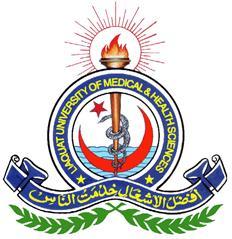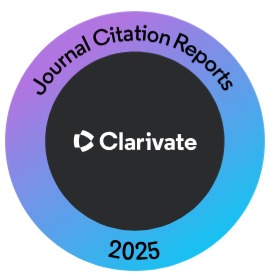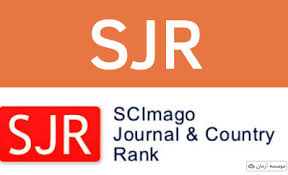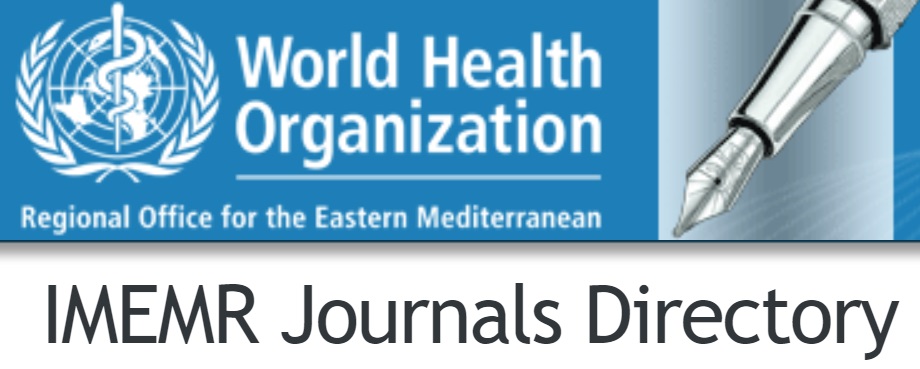Correlation between elevated bradykinin concentrations and death by COVID-19
Keywords:
Bradykinin, BK, Coronavirus Disease 2019, Severe Acute respiratory syndrome coronavirus 2 , SARS-CoV-2, inflamatory proteinAbstract
Objective: To investigate BK pathway dysregulation among and between COVID-19 survivors and the deceased.
Methodology: This case-control study was performed between 2020 and 2022 in Imam Hasan Hospital, Bojnurd, Iran. SARS-CoV-2 infected patients, comprising 40 deceased and 15 surviving patients, were recruited according to specific inclusion and exclusion criteria. A blood sample was taken from subjects during the disease. Blood BK levels in subjects (the groups of patients (55) and control (15)) were measured by the ELISA technique. All patients were selected from individuals over 18 years old with real-time PCR-proven SARS-CoV-2 infection. Also, the studied patients did not have metabolic syndrome (blood pressure, abdominal obesity, diabetes, cardiovascular disease). SPSS version 26 was used to compare the means.
Results: The blood serum BK level was significantly related to the outcome of COVID-19 disease (P=0.006) using a multiple logistic regression test. A week before death, a significant increase in the blood BK levels among deceased patients compared to survivors was seen (p=0.0001). The probability of death in patients with SARS-CoV-2 infection linearly increased by 4% (OR = 1.04) for each pg/ml increase in the BK level.
Conclusion: There is a close relationship between the rise in BK concentration during a COVID-19 infection and the disease outcome.
References
Bekassy Z, Lopatko Fagerström I, Bader M, Karpman D. Crosstalk between the renin–angiotensin, compliment, and kallikrein–kinin systems in inflammation. Nat Rev Immunol. 2021; 22: 1-18. doi: 10.1038/s41577-021-00634-8. Epub 2021 Nov 10.
Wu J, Akaike T, Hayashida K, Miyamoto Y, Nakagawa T, Miyakawa K et al. Identification of bradykinin receptors in clinical cancer specimens and murine tumor tissues. Int J Cancer. 2002; 98(1): 29-35. doi: 10.1002/ijc.10142.
Golias C, Charalabopoulos A, Stagikas D, Charalabopoulos K, Batistatou A. The kinin system-bradykinin: biological effects and clinical implications. Multiple roles of the kinin system-bradykinin. Hippokratia. 2007; 11(3): 124-8.
Regoli D, Gobeil F. Kallikrein–kinin system as the dominant mechanism to counteract hyperactive renin–angiotensin system. Can J Physiol Pharmacol. 2017; 95(10): 1117-24. doi: 10.1139/cjpp-2016-0619. Epub 2017 Apr 6.
Taddei S, Bortolotto L. Unraveling the pivotal role of bradykinin in ACE inhibitor activity. Am J Cardiovasc Drugs. 2016; 16(5): 309-21. doi: 10.1007/s40256-016-0173-4.
Velarde V, Ullian ME, Morinelli TA, Mayfield RK, Jaffa AA. Mechanisms of MAPK activation by bradykinin in vascular smooth muscle cells. Am J Physiol. 1999; 277(2): C253-C61. doi: 10.1152/ajpcell.1999.277.2.C253.
Rex DAB, Vaid N, Deepak K, Dagamajalu S, Prasad T. A comprehensive review on current understanding of bradykinin in COVID-19 and inflammatory diseases. Mol Biol Rept. 2022; 49(10): 9915-9927. doi: 10.1007/s11033-022-07539-2. Epub 2022 May 21.
Roche JA, Roche R. A hypothesized role for dysregulated bradykinin signaling in COVID?19 respiratory complications. FASEB J. 2020; 34(6): 7265-9. doi: 10.1096/fj.202000967. Epub 2020 May 2.
Wilczynski SA, Wenceslau CF, McCarthy CG, Webb RC. A cytokine/bradykinin storm comparison: what is the relationship between hypertension and COVID-19? Am J Hypertens. 2021; 34(4): 304-6. doi: 10.1093/ajh/hpaa217.
Chen Y, Huang D, Yuan W, Chang J, Yuan Z, Wu D et al. Lower serum Angiotensin-Converting enzyme level in relation to Hyperinflammation and Impaired Antiviral Immune Response Contributes to Progression of COVID-19 infection. Infect Dis Ther. 2021; 10(4): 2431-46. doi: 10.1007/s40121-021-00513-8. Epub 2021 Aug 13.
Hashemi SA, Khoshi A, Ghasemzadeh-Moghaddam H, Ghafouri M, Taghavi M, Namdar-Ahmadabad H et al. Development of a PCR-RFLP method for detection of D614G mutation in SARS-CoV-2. Infect Genet Evol. 2020; 86: 104625. doi: 10.1016/j.meegid.2020.104625. Epub 2020 Nov 7.
Zandi M, Soltani S, Fani M, Abbasi S, Ebrahimi S, Ramezani A. Severe acute respiratory syndrome coronavirus 2 and respiratory syncytial virus coinfection in children. Osong Public Health Res Perspect. 2021; 12(5): 286-292. doi: 10.24171/j.phrp.2021.0140. Epub 2021 Oct 1.
Tabassum A, Iqbal MS, Sultan S, Alhuthali RA, Alshubaili DI, Sayyam RS et al. Dysregulated bradykinin: mystery in the pathogenesis of COVID-19. Mediators Inflamm. 2022; 2022: 7423537. doi: 10.1155/2022/7423537.
McCarthy CG, Wilczynski S, Wenceslau CF, Webb RC. A new storm on the horizon in COVID-19: Bradykinin-induced vascular complications. Vasc Pharmacol. 2021; 137: 106826. doi: 10.1016/j.vph.2020.106826. Epub 2021 Jan 13.
Cure E, Cumhur Cure M, Vatansev H. Central involvement of SARS-CoV-2 may aggravate ARDS and hypertension. J Renin Angiotensin Aldosterone Syst. 2020; 21(4): 1470320320972015. doi: 10.1177/1470320320972015.
Dicpinigaitis PV. Angiotensin-converting enzyme inhibitor-induced cough: ACCP evidence-based clinical practice guidelines. Chest. 2006; 129(1): 169S-173S. doi: 10.1378/chest.129.1_suppl.169S.
Scangas GA, Bleier BS. Anosmia: differential diagnosis, evaluation, and management. Am J Rhinol Allergy. 2017; 31(1): 3-7. doi: 10.2500/ajra.2017.31.4403.
Garvin MR, Alvarez C, Miller JI, Prates ET, Walker AM, Amos BK et al. A mechanistic model and therapeutic interventions for COVID-19 involving a RAS-mediated bradykinin storm. Elife. 2020; 9: e59177. doi: 10.7554/eLife.59177.
Mendes GMdM, Do Nascimento IJB, Marazzi-Diniz PH, Da Silveira IB, Itaborahy MF, Viana LE et al. The des-Arg9-bradykinin/B1R axis: Hepatic damage in COVID-19. Front Physiol. 2022; 13: 1080837. doi: 10.3389/fphys.2022.1080837.
Downloads
Published
How to Cite
Issue
Section
License
Copyright (c) 2024 Journal of Liaquat University of Medical & Health Sciences

This work is licensed under a Creative Commons Attribution-NonCommercial-ShareAlike 4.0 International License.
Submission of a manuscript to the journal implies that all authors have read and agreed to the content of the undertaking form or the Terms and Conditions.
When an article is accepted for publication, the author(s) retain the copyright and are required to grant the publisher the right of first publication and other non-exclusive publishing rights to JLUMHS.
Articles published in the Journal of Liaquat University of Medical & health sciences are open access articles under a Creative Commons Attribution-Noncommercial - Share Alike 4.0 License. This license permits use, distribution and reproduction in any medium; provided the original work is properly cited and initial publication in this journal. This is in accordance with the BOAI definition of open access. In addition to that users are allowed to remix, tweak and build upon the work non-commercially as long as appropriate credit is given and the new creations are licensed under the identical terms. Or, in certain cases it can be stated that all articles and content there in are published under creative commons license unless stated otherwise.























